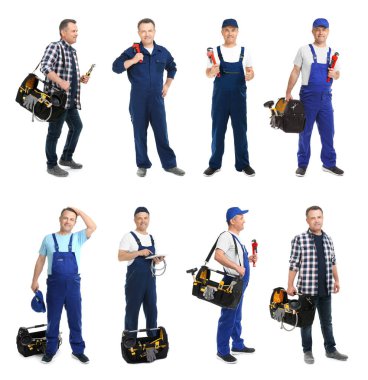
Plumbing is a complex and essential system for both residential and commercial settings. With a wide variety of plumbing issues and installations, it’s important to know the types of plumbers who specialize in specific areas of plumbing work. In this article, we will explore the 7 common types of plumbers and what plumbers do in each role. This comprehensive guide will help you understand which plumbing services are suitable for your specific needs and provide insights into the plumbing profession.
Residential Plumbers
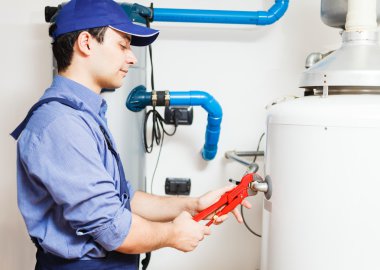
What Do Residential Plumbers Do?
Residential plumbers are specialists in handling plumbing issues in residential areas, which include homes, apartments, and other living spaces. They are highly skilled in tasks like pipe fittings, installing fixtures, water heater repairs, and ensuring that all household water systems function properly. The role of a residential plumber is crucial for maintaining comfort and convenience in our homes.
They commonly perform services under the Residential Plumbing Services in Houston category, including:
- Installing, repairing, and maintaining water supply systems
- Fixing leaking pipes and faucets
- Handling plumbing maintenance tasks to ensure optimal performance
- Replacing or installing water heaters and filtration systems
Types of Residential Plumbing Repairs
When it comes to types of plumbing repairs, residential plumbers cover a wide array of tasks. Common issues include broken drainage systems, leaking pipes, or malfunctioning water heaters. They ensure timely and effective repairs that prevent further damage to your property. The residential plumbing services list also includes water system maintenance, inspection of pipes for damage, and routine plumbing diagnostics. For prevention tips, check out Prevent Common Plumbing Issues in Houston Homes.
Service and Repair Plumbers
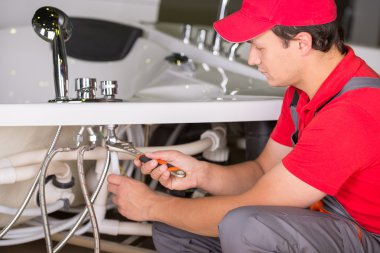
Service and repair plumbers are experts in managing routine plumbing maintenance as well as emergency repairs. They focus on maintaining, diagnosing, and repairing existing plumbing systems. What do plumbers do in this field? They specialize in dealing with leak detection, clogged drains, fixture replacements, and general upkeep of plumbing systems.
Their responsibilities include:
- Inspecting and maintaining plumbing fixtures like sinks, showers, and toilets.
- Fixing broken pipes or leaky taps.
- Ensuring proper functioning of drainage systems.
Service and repair plumbers are often called in during emergencies to fix unexpected issues, such as burst pipes or gas leaks. They also provide essential preventive maintenance services to ensure that the plumbing system continues to operate efficiently.
Commercial Plumbers
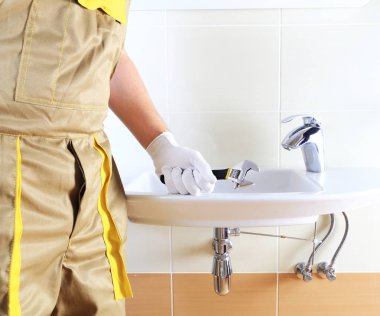
Commercial plumbers deal with plumbing jobs that involve larger projects, such as office buildings, restaurants, and commercial facilities. Commercial plumbers often work closely with plumbing contractors to handle high-capacity systems and maintain safety standards.
Their tasks may include:
- Installing and repairing large-scale plumbing systems.
- Coordinating with plumbing contractors on construction projects.
- Providing maintenance for gas fitting services, sprinkler systems, and sewage systems.
A commercial plumber needs advanced skills to handle the types of plumbing jobs that require heavy-duty equipment and a high level of expertise. These plumbing experts ensure that the systems in commercial properties run smoothly, ensuring business operations are not disrupted. If you need help for your business or facility, contact the Best Plumbers in Houston Texas.
Water Supply Plumbers
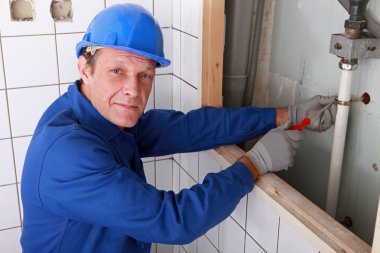
Roles and Responsibilities of Water Supply Plumbers
Water supply plumbers are focused on ensuring the availability of clean and safe water by handling water systems that transport water from the source to different parts of the property. The role includes working with pipe repairs, valves, and pumps to maintain an uninterrupted supply of water.
They are responsible for:
- Installing, repairing, and maintaining water systems in residential and commercial buildings.
- Handling plumbing work related to showers, sinks, and toilets.
- Ensuring that water tanks, valves, and filtration systems function effectively.
Understanding the Overview of the Plumbing System in a Typical Home can help you see how water supply plumbers maintain the efficiency of this critical system.
Different Types of Plumbing Systems in Buildings
Water supply plumbers often deal with 2 types of plumbing systems used in buildings: potable (drinkable) water systems and non-potable (for irrigation or other uses) systems. Their role is to ensure that these systems are installed and maintained to meet safety and regulatory standards.
Sanitary Plumbers
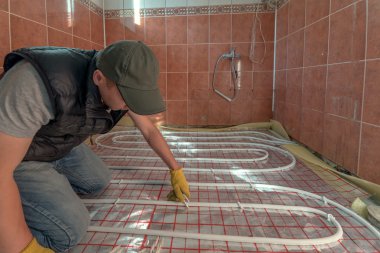
A sanitary plumber specializes in managing drainage systems and ensuring the effective removal of wastewater from a property. Their work involves installing and repairing drainage pipes, which helps maintain a clean and healthy environment.
Sanitary plumbers deal with the installation of:
- Toilet systems
- Sewage pipes
- Kitchen drainage and vent systems
They play a vital role in maintaining the hygiene of a building. The different types of plumbing tasks handled by sanitary plumbers help in preventing clogs, sewage backups, and ensuring the proper disposal of waste.
Gas Fitters and Roof Plumbers

What Do Gas Fitters Do?
Gas fitters are responsible for working with gas lines, ensuring safe gas fitting services for stoves, water heaters, and other appliances that require natural gas. They ensure that gas lines are installed, maintained, and repaired according to strict safety standards.
Roof Plumbers and Their Specialization
Roof plumbers specialize in managing rainwater systems, including gutters, downpipes, and drainage systems for rooftops. Their work helps to protect the property from water damage by ensuring that rainwater is properly diverted away from the structure.
New Construction Plumbers
New construction plumbers are involved in the early stages of building projects. Their tasks include installing new plumbing systems for residential and commercial buildings during construction. They collaborate with other professionals, like builders and plumbing contractors, to make sure that the plumbing framework is in place according to the building plans.
Their role covers:
- Installing pipes, valves, and fittings for fresh construction projects.
- Collaborating with construction teams for timely project completion.
- Handling new construction plumber jobs, which involve laying down the main water systems and sewage lines.
Conclusion
Plumbing is a vital service that requires specialized skills for different types of projects. Understanding the plumbing types and choosing the right professional plumber for your needs can make a significant difference in the quality and longevity of the work. Always rely on professional plumbers who specialize in the specific plumbing tasks required to meet your needs effectively.
For expert help, contact the Best Plumber in Friendswood Houston Plumbing Expert offering top-tier residential and commercial plumbing services across Texas.
FAQs
What Are Types of Plumbing?
There are several types of plumbing, including residential, commercial, sanitary, water supply, and gas plumbing. Each type has its unique purpose and requires specialized skills and tools to complete different jobs effectively.
What Type of Plumber Makes the Most Money?
What type of plumber makes the most money? Generally, commercial plumbers and gas fitters tend to make the highest salaries, due to the complexity and risk involved in their jobs. The types of plumbers and salary depend on the skills required and the scale of projects they undertake.
What is the difference between a residential and commercial plumber?
Residential plumbers work in homes and small residential units, handling installations, repairs, and maintenance. Commercial plumbers handle larger plumbing systems in commercial properties like offices and retail spaces, dealing with more complex systems and regulations.
Which type of plumber should I hire for a home renovation?
For a home renovation, a residential plumber or a new construction plumber is ideal. They specialize in installing, updating, or repairing plumbing systems in residential spaces, ensuring that all fixtures, pipes, and systems are up to code and meet your renovation needs.
What are the most common plumbing services?
The most common plumbing services include leak repairs, drain cleaning, pipe installation, water heater maintenance, and fixture replacement. These services help maintain the functionality and efficiency of residential and commercial plumbing systems, preventing major issues.
How do I know which plumber to hire for my needs?
To determine the choose right plumber, assess your specific plumbing needs. Residential plumbers are best for home-related issues, while commercial plumbers handle larger, more complex systems. For gas lines, hire a certified gas fitter, and for drainage, a sanitary plumber is ideal.
What is the role of a sanitary plumber?
A sanitary plumber installs, repairs, and maintains drainage systems that handle wastewater. They ensure that waste is efficiently removed from homes and commercial buildings, preventing clogs, sewage backups, and maintaining overall sanitation standards.
What qualifications do professional plumbers need?
Professional plumbers need proper certifications, licenses, and training to work in the field. Depending on their specialty, they may require additional qualifications for gas fitting or advanced plumbing tasks. Experience and adherence to local codes are also crucial for effective plumbing work.
What common plumbing services should I expect?
Common plumbing services include leak repairs, drain cleaning, pipe installation, water heater maintenance, and fixture replacements. These services ensure the efficiency and functionality of plumbing systems in residential and commercial properties.

